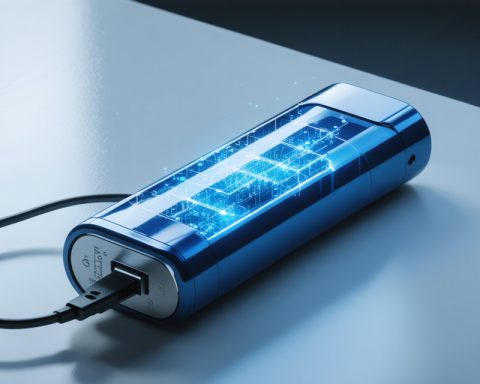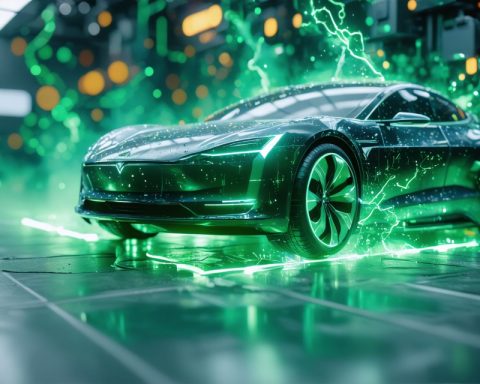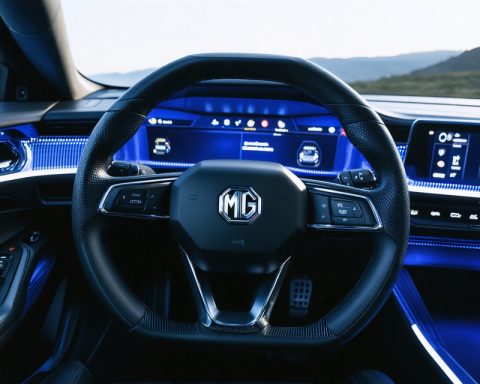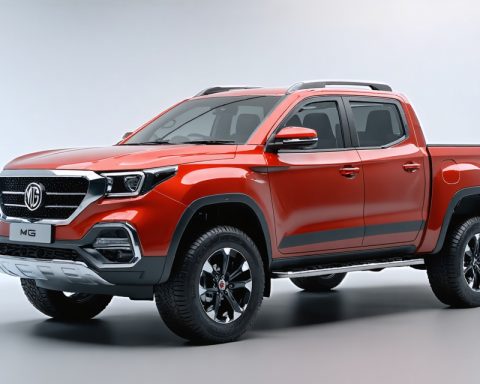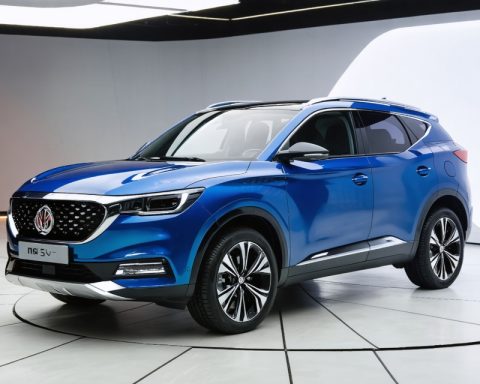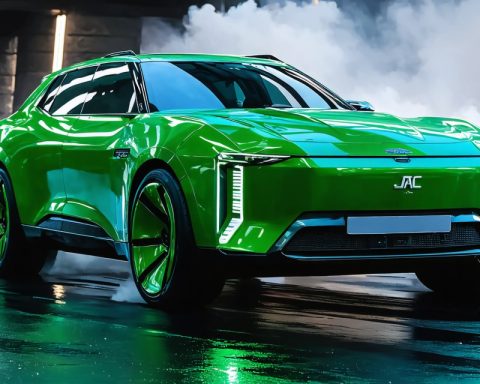- Springs Junction on New Zealand’s South Island hosts an innovative EV charging station, powered by retired Nissan Leaf batteries.
- Meridian Energy tackled the challenge of limited grid capacity by utilizing a Battery Energy Storage System (BESS) to store energy overnight.
- The system releases stored energy during the day, catering to electric vehicle travelers when grid resources are strained.
- A dynamic digital platform provides real-time energy availability updates, empowering drivers with informed decision-making.
- Meridian’s approach fosters a community ethos—use only what is needed, ensuring sustainable resource sharing.
- This initiative marks a pivotal shift in rural electrification, blending tradition with innovative energy solutions.
- Springs Junction exemplifies a sustainable future, with similar clean-energy projects expanding across New Zealand.
On a serpentine road slicing through the heart of New Zealand’s South Island, a beacon of innovation has emerged amidst the rugged landscape. Springs Junction, a vital artery connecting Christchurch to Nelson, now houses a groundbreaking EV charging station, a solution as unique as it is necessary.
Meridian Energy, the force behind this endeavor, faced a daunting challenge: how to power electric vehicles in a location where the power grid strains under its own weight? In the remote sanctuary of Springs Junction, the local electricity network found itself stretched to its limits for 19 hours a day, leaving scant energy for charging beyond the witching hours. However, this roadblock sparked a brilliant solution.
Harnessing the ingenuity reminiscent of the Kiwi spirit, the team at Meridian crafted a scheme that breathes life into used Nissan Leaf batteries. By implementing three 120kWh Battery Energy Storage System (BESS) units, these previously retired batteries are charged overnight—when the grid sleeps soundly—storing power and disbursing it during the daylight hours, meeting the demands of weary EV travelers.
Yet, innovation didn’t halt at technology alone. A dynamic digital platform offers real-time updates every five minutes, showing drivers exactly how much energy is available, transforming uncertainty into informed decision-making. This site encourages a community approach: take only the electricity you need, leaving more for those who follow.
This distinct approach to sustainable travel exemplifies the fusion of tradition and modern necessity, weaving a narrative of resilience and forward-thinking in rural electrification. Springs Junction embodies more than a solution; it’s an emblem of a sustainable future, proving that even amidst constraints, progress can forge a new path.
Meridian’s artistry in managing power streams into the region’s landscape as a cornerstone of a broader mission, refusing to be tethered by geographical boundaries. With projects in Kohatu completed and work underway in Whataroa, each step marks a clearer path towards an interconnected, clean-energy future.
In a realm where the nascent meets the necessity, Meridian’s endeavor at Springs Junction is not just a milestone; it is an invitation to explore the realms of possibility, where technology and nature dance in harmonious rhythm, reshaping our journey towards green horizons.
Discover How New Zealand’s Innovative EV Charging Station Is Leading the Sustainable Energy Revolution
Introducing a New Era in Electric Vehicle Charging
Springs Junction in New Zealand has emerged as a symbol of innovation in the realm of sustainable travel, showcasing a state-of-the-art electric vehicle (EV) charging station powered by a Battery Energy Storage System (BESS). This initiative, led by Meridian Energy, demonstrates effective use of repurposed Nissan Leaf batteries, tapping into a yet untapped potential for electric vehicle users traveling through the remote landscapes of South Island.
The Problem and Meridian’s Creative Solution
Springs Junction is a critical thoroughfare connecting Christchurch with Nelson. It grapples with electricity network constraints, operational for only five hours during the night. Meridian Energy has cleverly circumvented this issue by deploying three 120kWh Battery Energy Storage System (BESS) units to store energy during these off-peak hours and supply it during the day.
How It Works:
1. Energy Storage: Old Nissan Leaf batteries are repurposed into BESS units that absorb energy during low-demand night hours.
2. Daytime Disbursement: During the day, these systems release stored energy to charge electric vehicles, a boon for EV travelers on this remote route.
3. Real-Time Updates: The system includes a digital platform providing real-time updates about energy availability, empowering travelers with data-driven decisions.
Market Forecasts and Industry Trends
The EV charging market is rapidly evolving with innovations like those at Springs Junction. The global market’s growth, propelled by increasing EV adoption, projects significant advancements and wider deployment of BESS solutions. Pioneering locations like Springs Junction serve as blueprints for integrating sustainable practices into energy management, aligning with global goals of reducing carbon footprints.
Pros and Cons Overview
Pros:
– Sustainability: Reduces dependency on strained power grids; leverages renewable energy.
– Cost-Effective: Utilizes retired batteries, saving resources and cost compared to new battery production.
– Empowerment: Enables informed choices through real-time data for users.
Cons:
– Initial Investment: High initial cost for setting up BESS units and digital platform.
– Battery Lifespan: Uncertainties in the long-term durability of repurposed batteries.
Real-World Use Cases
Besides its immediate utility for travelers, this system model can be employed in other secluded areas worldwide, enhancing accessibility to clean energy and fostering sustainable transport. It is particularly beneficial for remote accommodation facilities, eco-friendly tour services, and rural electrification plans.
Key Considerations and Actionable Recommendations
For communities or businesses exploring similar initiatives:
1. Assess Grid Capacity: Begin by evaluating the local grid’s capacity issues.
2. Seek Partnerships: Collaborate with energy experts and companies like Meridian to explore suitable sustainable solutions.
3. Utilize Data: Implement a platform for monitoring usage, ensuring efficient energy distribution.
4. Educate Users: Promote community awareness on energy conservation and shared resource utilization.
Conclusion
Initiatives like Springs Junction’s EV charging station are paving the way for the future of renewable energy solutions, demonstrating that innovative thinking can overcome even the most challenging constraints. By leveraging repurposed technology and real-time data, Meridian Energy has crafted a model that others can replicate, promoting a cleaner, greener future.
For more insights on sustainable energy and technology advancements, visit Meridian Energy.





